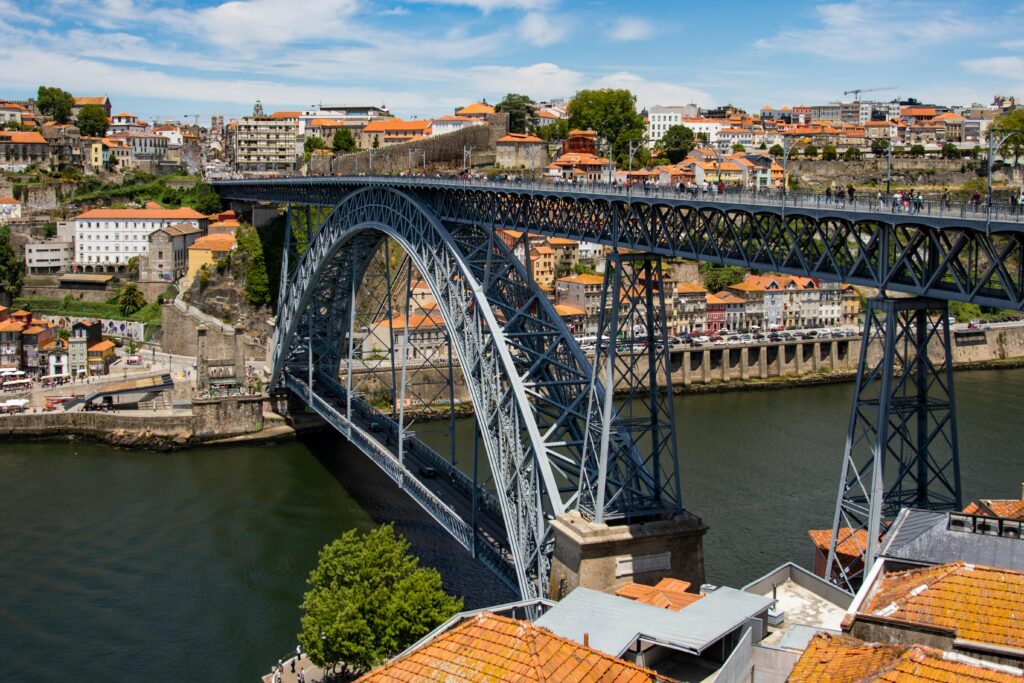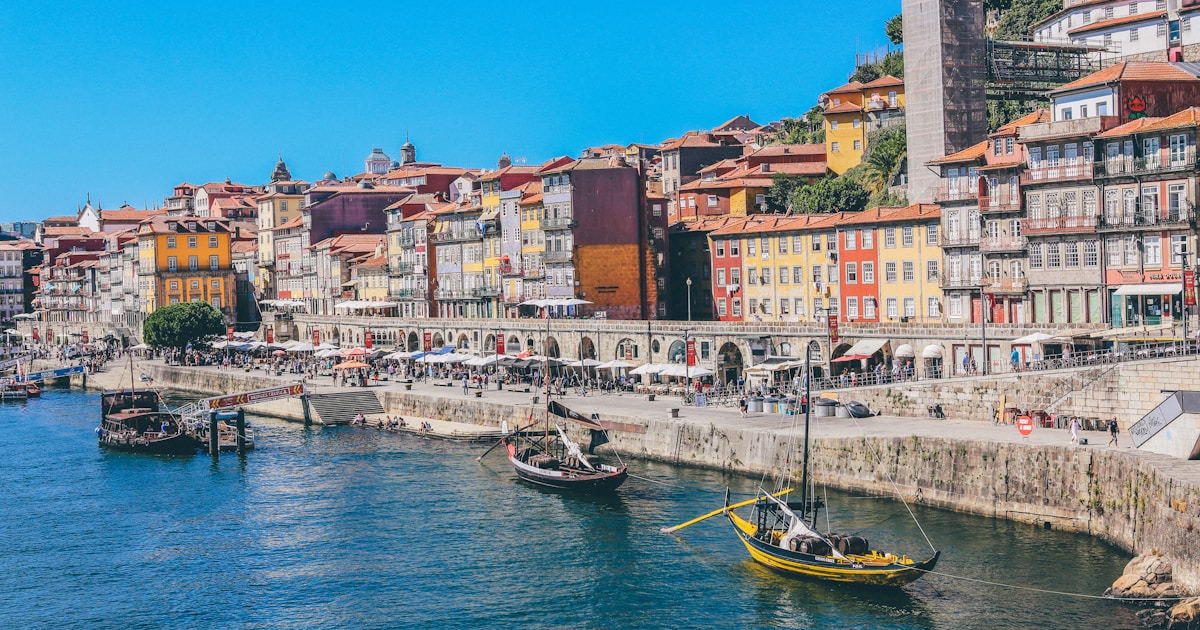Portugal has become one of the most popular destinations for international relocations, and it’s easy to see why. With its stunning coastline, rich culture, affordable cost of living, and welcoming expat community, Portugal offers an incredible quality of life for remote workers, retirees, and digital nomads alike.
In this comprehensive guide, we’ll walk you through everything you need to know about moving to Portugal in 2025, from visa requirements to finding the perfect neighborhood.
Table of Contents

Why Move to Portugal?
Before diving into the logistics, let’s explore why Portugal has captured the hearts of so many expats:
1. Exceptional Quality of Life
Portugal consistently ranks among the top countries for quality of life. The Mediterranean climate, beautiful beaches, historic cities, and relaxed pace of life make it an ideal destination for those seeking a better work-life balance.
2. Affordable Cost of Living
Compared to other Western European countries, Portugal offers significantly lower living costs. You can enjoy a high standard of living without breaking the bank, especially outside major cities like Lisbon and Porto.
3. Digital Nomad-Friendly
Portugal was one of the first European countries to introduce a dedicated digital nomad visa, recognizing the growing trend of remote work. The country has excellent internet infrastructure and co-working spaces in major cities.
4. Safe and Welcoming
Portugal is one of the safest countries in Europe, with low crime rates and a welcoming attitude toward foreigners. English is widely spoken, especially in tourist areas and among younger generations.
5. Strategic Location
Portugal’s position on the western edge of Europe makes it perfect for exploring the continent while maintaining easy access to Africa and the Americas.
Visa Requirements for Moving to Portugal
Understanding your visa options is the first step in planning your move to Portugal. Here are the main visa categories:
D7 Visa (Passive Income Visa)
The D7 visa is ideal for retirees, freelancers, and remote workers with passive income or employment from outside Portugal.
Requirements:
- Proof of regular passive income (minimum €760/month)
- Health insurance coverage
- Clean criminal record
- Portuguese bank account
- Accommodation in Portugal
Processing Time: 2-4 months
Digital Nomad Visa (D8)
Introduced in 2022, Portugal’s digital nomad visa is designed for remote workers employed by companies outside Portugal.
Requirements:
- Employment contract or service agreement with foreign company
- Minimum monthly income of €2,800 (4x minimum wage)
- Proof of remote work capability
- Health insurance
- Clean criminal record
Processing Time: 60-90 days
Golden Visa (Investment Visa)
For those willing to make a significant financial investment, the Golden Visa offers a path to Portuguese residency.
Investment Options:
- €500,000 in investment funds
- €250,000 in cultural heritage preservation
- €500,000 in company shares
- Creating 10+ jobs
Benefits:
- Minimal stay requirements (7 days/year)
- Path to citizenship after 5 years
- Schengen area access
Student Visa
If you’re planning to study in Portugal, a student visa allows you to live and work part-time.
Requirements:
- Acceptance letter from Portuguese institution
- Proof of financial means (€665/month)
- Health insurance
- Accommodation proof
Cost of Living in Portugal: What to Expect
One of Portugal’s biggest draws is its affordable cost of living. Here’s a detailed breakdown:
Housing Costs
Lisbon:
- 1-bedroom apartment (city center): €900-€1,400/month
- 1-bedroom apartment (outside center): €650-€1,000/month
- 3-bedroom apartment (city center): €1,800-€2,800/month
Porto:
- 1-bedroom apartment (city center): €700-€1,100/month
- 1-bedroom apartment (outside center): €500-€800/month
- 3-bedroom apartment (city center): €1,300-€2,000/month
Algarve (Coastal):
- 1-bedroom apartment (city center): €600-€1,000/month
- 1-bedroom apartment (outside center): €450-€750/month
Smaller Cities (Braga, Coimbra):
- 1-bedroom apartment (city center): €400-€700/month
- 1-bedroom apartment (outside center): €300-€500/month
Monthly Living Expenses (Single Person)
- Groceries: €200-€300
- Utilities (electricity, water, internet): €80-€120
- Transportation (public): €40-€60
- Dining out: €150-€250
- Gym membership: €25-€40
- Mobile phone: €15-€30
Total Monthly Budget: €900-€1,500 (excluding rent)
Healthcare Costs
Portugal has a public healthcare system (SNS) that’s accessible to residents. Private health insurance costs €30-€80/month for comprehensive coverage.
Best Cities and Neighborhoods for Expats
Lisbon
Portugal’s capital is the most popular destination for expats, offering a perfect blend of historic charm and modern amenities.
Best Neighborhoods:
- Príncipe Real: Hip, central, LGBTQ+ friendly
- Campo de Ourique: Residential, family-friendly, local vibe
- Alfama: Historic, touristy, beautiful views
- Parque das Nações: Modern, spacious, waterfront
Pros: Most job opportunities, vibrant nightlife, cultural events
Cons: More expensive, crowded, touristy
Read Also: Digital Nomad Visa Guide 2025: 50+ Countries Offering Remote Work Visas
Porto
Portugal’s second-largest city offers a more relaxed pace with stunning architecture and excellent wine.
Best Neighborhoods:
- Foz do Douro: Beachfront, upscale, family-friendly
- Cedofeita: Artistic, trendy, young professionals
- Boavista: Modern, business district, good transport
- Ribeira: Historic center, picturesque, touristy
Pros: Lower cost than Lisbon, beautiful architecture, wine culture
Cons: More rainy, fewer international flights
Algarve
The southern coast is perfect for beach lovers and golf enthusiasts.
Best Towns:
- Lagos: Surf culture, young expats, beaches
- Tavira: Traditional, quiet, authentic Portuguese life
- Albufeira: Lively, international community, nightlife
- Faro: Capital city, good transport links, less touristy
Pros: Best weather, beaches, relaxed lifestyle
Cons: Seasonal tourism, limited job market, less cultural events
Braga
A university city in northern Portugal with a strong tech scene.
Pros: Very affordable, young population, growing tech industry
Cons: Smaller expat community, more conservative, limited nightlife
Step-by-Step Relocation Checklist
Moving to Portugal requires careful planning. Here’s your timeline:
3-6 Months Before Move
- [ ] Research visa options and requirements
- [ ] Start Portuguese bank account application
- [ ] Get health insurance quotes
- [ ] Research neighborhoods and housing
- [ ] Learn basic Portuguese phrases
- [ ] Check passport expiration (must be valid 3+ months beyond stay)
- [ ] Get NIF (tax number) – can apply from abroad
2-3 Months Before Move
- [ ] Submit visa application at Portuguese consulate
- [ ] Book temporary accommodation (first 1-2 months)
- [ ] Arrange international money transfer for deposits
- [ ] Get international driver’s license
- [ ] Schedule apostille for important documents
- [ ] Research schools (if moving with children)
1 Month Before Move
- [ ] Book flights and arrange pet transport (if applicable)
- [ ] Arrange shipping for belongings or storage
- [ ] Notify employer/clients of address change
- [ ] Set up mail forwarding
- [ ] Get travel insurance for initial period
- [ ] Download offline maps and translation apps
Upon Arrival
- [ ] Register at local SEF office (within 3 days)
- [ ] Open Portuguese bank account in person
- [ ] Get Portuguese SIM card
- [ ] Register for healthcare (SNS)
- [ ] Start apartment hunting for long-term
- [ ] Join expat communities and language classes
- [ ] Register for utilities (water, electricity, internet)
First 3 Months
- [ ] Apply for residence card
- [ ] Convert driver’s license (if planning to drive)
- [ ] Register with local junta de freguesia
- [ ] Set up tax residency status
- [ ] Find language exchange partners
- [ ] Explore neighborhoods and local markets
Healthcare System in Portugal
Portugal offers both public and private healthcare options:
Public Healthcare (SNS)
- Free or low-cost for residents
- Requires registration and health card
- Can have waiting times for non-urgent care
- High quality of care
Private Healthcare
- Faster appointments
- English-speaking doctors common
- International hospitals in major cities
- €30-€80/month for insurance
Recommended for expats: Start with private insurance while getting established, then switch to public system once fluent in Portuguese.
Education Options for Families
If moving with children, Portugal offers several education options:
Public Schools
- Free education
- Taught in Portuguese
- Good for full immersion
International Schools
- English curriculum (British, American)
- €5,000-€20,000/year
- Found in Lisbon, Porto, Algarve
- Popular: St. Julian’s, Oporto British School
Portuguese Private Schools
- Bilingual programs
- €3,000-€8,000/year
- Middle ground option
Job Market and Remote Work
For Remote Workers
Portugal is ideal for digital nomads and remote workers:
- Excellent internet (average 100+ Mbps)
- Many co-working spaces (€100-€300/month)
- Time zone friendly for US/Europe clients
- Growing startup ecosystem
Local Job Market
Finding local employment can be challenging:
- Average salary: €1,000-€1,500/month
- Tech sector has better salaries (€2,000-€4,000/month)
- Tourism and hospitality always hiring
- English teaching opportunities
Best job boards: LinkedIn Portugal, Indeed Portugal, Net-Empregos
Learning Portuguese
While many Portuguese speak English, learning the language dramatically improves your experience:
Language Resources
- Duolingo: Free, gamified learning
- iTalki: One-on-one tutors (€10-€20/hour)
- Meetup groups: Free language exchanges
- Instituto Camões: Official Portuguese courses
- Portuguese Your Way: Podcast for learners
Tip: Portuguese from Portugal differs from Brazilian Portuguese – make sure you’re learning European Portuguese!
Banking and Finance
Opening a Bank Account
Best banks for expats:
- Millennium BCP: English support, expat-friendly
- ActivoBank: Online banking, no fees
- Novo Banco: Good for Golden Visa holders
- Caixa Geral de Depósitos: Largest bank, wide network
Required documents:
- Passport
- NIF (tax number)
- Proof of address in Portugal
- Employment letter or income proof
Tax Considerations
Portugal offers the Non-Habitual Resident (NHR) tax regime:
- 10-year tax benefits
- 20% flat tax on Portuguese income
- Exemptions on foreign pension income
- Must apply within first year of residency
Recommendation: Consult with a Portuguese tax advisor specializing in expats.
Cultural Tips for Smooth Integration
Dos and Don’ts
Do:
- Greet with kisses on both cheeks (once acquainted)
- Learn basic Portuguese – locals appreciate the effort
- Enjoy long, leisurely meals
- Respect siesta time (1-3 PM)
- Dress well for social occasions
Don’t:
- Speak Spanish (they’re not the same!)
- Rush through meals
- Compare Portugal to Spain
- Be loud in restaurants
- Expect 24/7 convenience
Portuguese Holidays to Know
- Freedom Day (April 25): Celebrates end of dictatorship
- Portugal Day (June 10): National day
- Saints Days (June): Major celebrations, especially in Lisbon
- Republic Day (October 5): Another national holiday
Using Aqee to Manage Your Relocation
Moving to Portugal involves juggling many documents and deadlines. This is where Aqee can transform your relocation experience:
Track Important Documents
- Upload and organize all visa documents in Smart Vault
- Never miss renewal deadlines with automatic reminders
- Access documents from anywhere
Complete Relocation Quests
- Follow step-by-step quests for each relocation milestone
- Earn XP as you complete tasks
- Stay motivated with progress tracking
Connect with Others
- Find buddies who’ve recently moved to Portugal
- Get help from experienced expats
- Share your own relocation tips
Start Your Portugal Relocation Quest on Aqee →
Final Thoughts
Moving to Portugal in 2025 is an exciting adventure that offers incredible quality of life, beautiful landscapes, and a welcoming culture. While the process involves paperwork and planning, thousands of expats successfully make the move every year.
The key to a successful relocation is thorough preparation. Use this guide as your roadmap, stay organized with your documents, and don’t hesitate to reach out to expat communities for support.
Portugal isn’t just a place to live—it’s a lifestyle that encourages you to slow down, enjoy good food and wine, and appreciate the beauty around you. Whether you’re drawn by the surf in the Algarve, the culture in Lisbon, or the affordability throughout the country, Portugal has something special to offer.
Ready to start planning your move? Begin tracking your relocation journey with Aqee’s document vault and quest system. Your Portuguese adventure awaits!
Have questions about moving to Portugal? Drop them in the comments below, or connect with our community on Instagram and LinkedIn!
Related Articles:
- Digital Nomad Visa Guide 2025
- The Ultimate Immigration Document Checklist
- Best Cities for Digital Nomads in Europe


